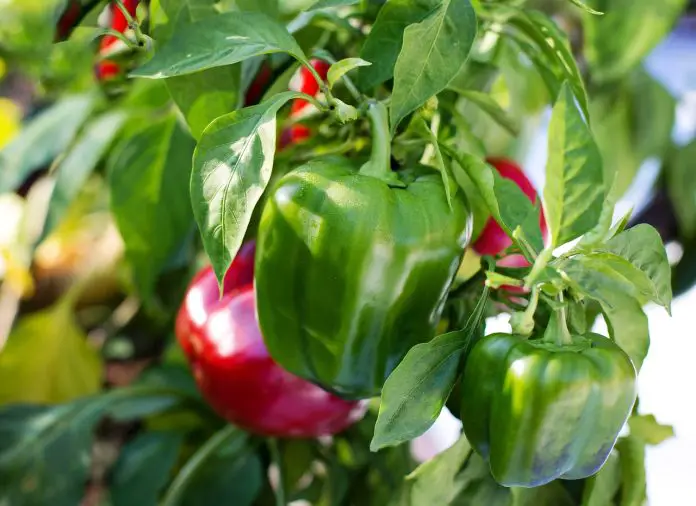The popularity of homegrown food is constantly on the rise, and for good reason. Growing your own food is a fulfilling experience and benefits your health, the environment, and your wallet. In addition, homegrown produce ensures that your food is fresh, nutritious, and free from harmful chemicals. Interested? Well, we’ve compiled a list of the many benefits of growing your food to help give you the motivation to get started.
More Nutritional Food
Store-bought produce has been carefully picked and genetically structured to ensure it will last throughout the shipping process and shelf life dates. This is based on the idea that shoppers only want to buy ‘pretty’ foods rather than bulbous or ugly fruits and vegetables. However, perfect-looking fruits and veg don’t impact nutrition. Healthy, nutritious produce is grown in soil rich with nutrients and helpful microbes, but stored produce is not put on the shelf because of these factors – only their appearance. However, you can change this in your garden. If you grow your food in healthy, nutrient-rich soil, you will get healthier, more nutritious food.
Better Taste
When you grow your own fruits and vegetables, you have control over the quality of your produce. You will choose the plant varieties, set up the conditions in which you grow them, and rotate your crops to help maintain healthy soil. These conditions help grow fruit and veg with more natural sugars for food that tastes much better. In addition, you can use fruit cages to protect your crops from pests and animals, ensuring that your fruits are sweeter and more flavorful and elevate your meals.
Reduces Carbon Emissions
Commercial farming devours an astonishing amount of our resources, and food miles (the measurement of fuel used to transport food from produce to consumer) only add to the carbon emissions that food production releases. In fact, global food miles generate nearly 20% of all carbon emissions. However, growing your own produce can help reduce this. You can reduce the high amounts of carbon and fossil fuels moving and importing food products by growing all your favourite fruits and vegetables in your own garden.
Encourages Connections With Nature
Growing your own food allows you to connect with nature physically and mentally. By physically interacting with the soil, plants and weather, you are experiencing each stage of the growing process, making the eventual harvesting and consuming of the food more satisfying. Additionally, each stage of the growing process nurtures a deeper understanding of the cycles of growth and nature itself.
Nurtures Relationships
One of the big benefits of growing your own food is that you can bring other people in on the fun. For example, gardening is a fun, educational experience for children, who can learn about where their food comes from and develop an appreciation for the natural world. On the other hand, planting and tending to a garden with your spouse, partner, or friends can be a great way to spend quality time together and bond over a shared hobby.
Plus, harvesting and sharing your garden’s bounty with others can be rewarding too. You can host a BBQ, throw a party or hold a potluck, using your freshly grown produce for your meals. Sharing your harvest with friends, family, or neighbours is a great way to strengthen your relationships and foster a sense of community.
Provides Learning Opportunities
We touched on the benefits of bringing children out into your garden previously, but the learning opportunities that growing your own food provides are worthy of more in-depth exploration. Engaging in the garden allows children to learn about the natural world, where their food comes from, and how to care for living things. Also, kids can get involved in planting, watering, weeding, and harvesting, helping them learn about the different stages of plant growth and the importance of healthy soil and compost.
On the other hand, adults can learn just as much from a garden as children can.For example, growing your own food can be a way to learn new skills and expand your knowledge about horticulture, ecology, and sustainability. Also, you can experiment with different planting techniques, such as companion planting or vertical gardening, and learn about the benefits of using organic and natural methods to promote plant growth and health.
Saves Money
Many of us are constantly looking for ways to save money, and growing your own food is a fun way of reigning in your finances in the long run. While some initial expenses for soil, tools, and seeds may be substantial, the long-term savings will be substantial. Growing your own fruits and vegetables can reduce your grocery bills and avoid the markup that retailers add to fresh produce. Moreover, when you grow your own food, you can harvest what you need and avoid throwing away unused produce that may spoil before you can use it.
Enriches Leisure Time
Growing your own food is one of the most rewarding hobbies, giving you time to relax, unwind, connect with nature and enjoy light physical activity. Also, you will witness plants grow and develop, express your individuality, experiment with different design ideas, and slow down and appreciate life’s simple pleasures. All in all, taking on gardening and growing your own food as a hobby is a wonderful way to enrich your leisure time, and you’ll see the benefits in other aspects of your life too. For example, it can improve your mental and physical health by reducing stress, increasing physical activity, and providing a sense of accomplishment.So whether you enjoy the physical activity, the sensory experience, the social connections, or the creative expression, growing your own food can be a way to add joy and meaning to your leisure time.
Conclusion
Growing your own food is more than just a trend – it’s a way to improve your health, community, and the environment. By planting your own fruits and vegetables, you can enjoy various benefits, from better nutrition and taste to reduced carbon emissions and cost savings. So grab your gloves, shovel, and seeds, and start planting! Your mind, body, and soul will thank you.
Resources
European Commission. (2023, January 25). From field to fork: Global food miles generate nearly 20% of all CO2 emissions from food. European Commission Environment. https://environment.ec.europa.eu/news/field-fork-global-food-miles-generate-nearly-20-all-co2-emissions-food-2023-01-25_en
Royal Horticultural Society. (n.d.). Why gardening makes us feel better. https://www.rhs.org.uk/advice/health-and-wellbeing/articles/why-gardening-makes-us-feel-better







